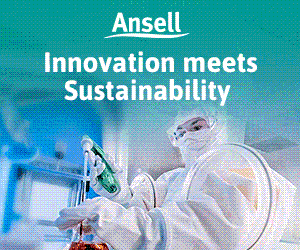Hosokawa has been working a multinational biotech company to develop a system that requires minimum operator intervention while maintaining low exposure to potential airborne contamination.
The liquid waste is pumped to a double outlet inside a laminar airflow booth. In turn, each outlet is connected through a series of safety interlocks to an empty IBC, which is manually placed on a weigh scale and connected by an airtight seal. A preset volume of waste is pumped into the IBC with the weigh scales acting as a safety back up, switching off the flow and ensuring overfill is prevented. Safety sensors prevent the flow of waste without the presence and connection of an unfilled IBC. Air displaced from the IBC is drawn off by an extraction system and passed through a HEPA filter to prevent airborne contamination.
Once the IBC is filled and the flow of waste stopped, spray balls wash the chute and outlet valve with water to ensure that no waste product contaminates the top of the IBC on seal removal. The operator is then able to break the seal on the outlet of the IBC in order to fit the sealing cap. At this point a localised extraction system removes the air within the area of operation, providing a further safeguard for operators against contamination by any airborne substances.
The Hosokawa Micron waste system offers a safe handling solution for vaccine producers and can be customised to suit individual production requirements.




